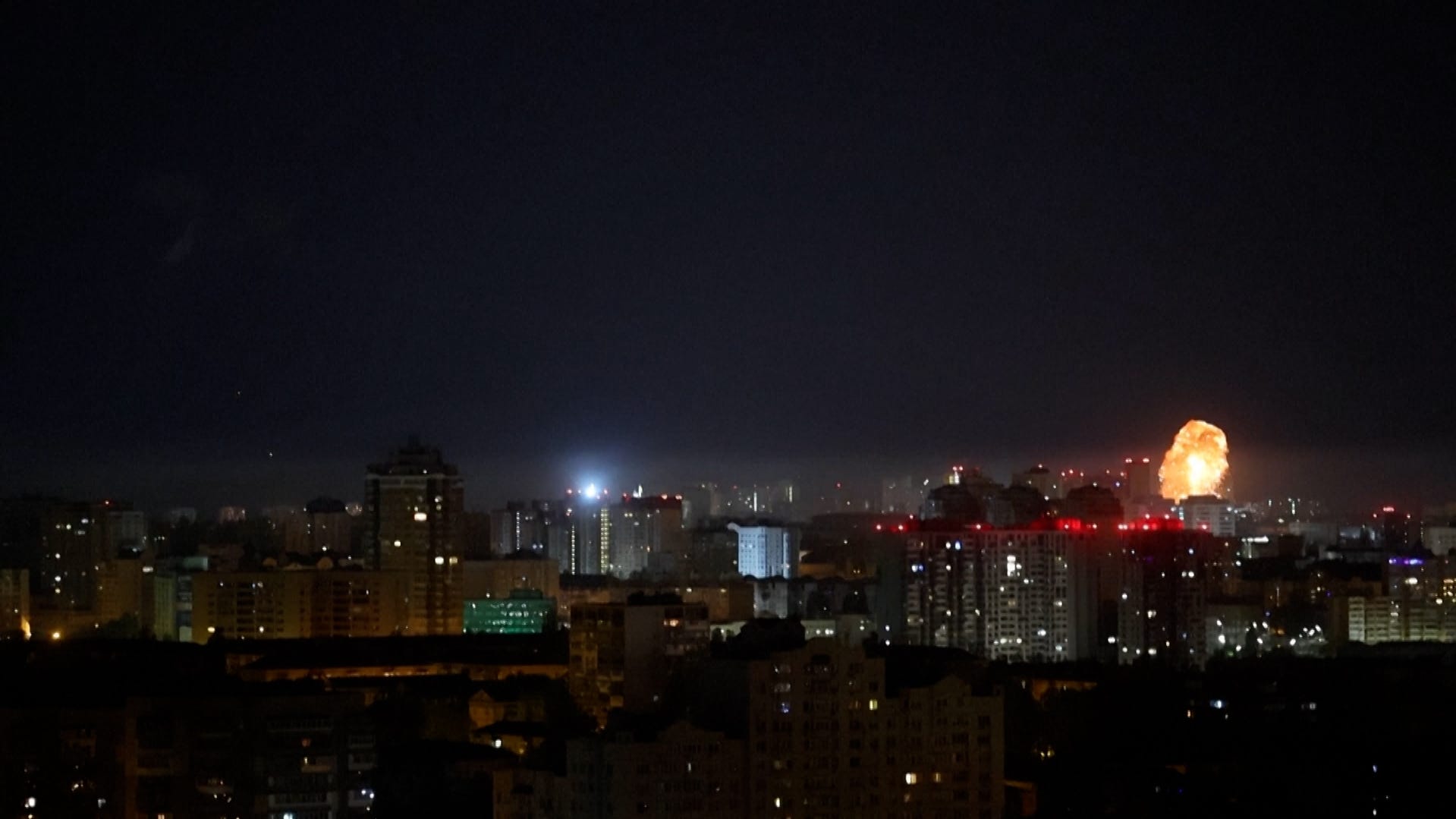Russia wields nuclear threat as it attacks Ukraine and Trump says Zelenskyy 'inflammatory'
Russia's Vladimir Putin and Ukraine's Volodymyr Zelenskyy face pressure from the U.S., which has threatened to walk away from its peace efforts unless some progress is achieved

- Moscow might consider a nuclear strike if threatened.
- Russia launched a huge missile and drone attack on Kyiv, killing at least eight people and injuring dozens.
- The Trump administration has been pursuing a peace deal between Ukraine and Russia.
The Kremlin's top security official said his country reserves the right to use nuclear weapons if it faces aggression by Western countries, as overnight Russian missile and drones strikes on Ukraine's capital Kyiv killed at least eight people and injured more than 70 others.
Russian officials routinely make saber-rattling remarks about Moscow's nuclear posture. Sergei Shoigu, a former defense minister who now heads Russia's powerful national security council, made his comments on April 24 in an interview with the TASS state news agency.
He said Russia might consider a nuclear strike in response to a conventional attack on Russia or its ally Belarus that "created a critical threat" to their sovereignty or territorial integrity.
Shoigu's intervention came as Russia's attack on Kyiv triggered fires, smashed buildings and buried residents under rubble in one of its deadliest assaults on Ukraine in months. Ukraine's air force said other parts of the country were also targeted. Russia's defense ministry claimed the strikes were targeted at infrastructure connected to Ukraine's "aviation, rocket and space" industries, as well as companies that make tanks.
Shoigu's remarks and the attacks come at a critical moment in the war.
They came hours after President Donald Trump and Vice President JD Vance warned that Washington could abandon trying to negotiate a Ukraine-Russia peace settlement if there is no progress on a deal soon. Trump and his aides want Ukraine to accept a U.S. proposal that would effectively grant Russia all the territory it has gained in the war since 2022. The proposal also appears to call for the United States to recognize Russia's claim on Crimea, a region of Ukraine that Russia annexed in 2014. Only a handful of countries, including North Korea and Venezuela, have done so.
What news from abroad means for America: Sign up for Paste BN's Russia-Ukraine Crisis newsletter.
The U.S. plan, which Ukrainian President Volodymyr Zelenskyy has publicly rejected, also appears to block Ukraine's ambition to join the NATO military alliance. "There is nothing to talk about," Zelenskyy said in Kyiv on April 22, reiterating that Ukraine would never legally recognize Russia's control of Crimea. "This violated our Constitution. This is our territory, the territory of Ukraine."
Zelenskyy's comments angered Trump. He said on his Truth Social platform on April 23 that Ukraine's president was being "inflammatory" and prolonging "the killing field." The next day, as Russia launched its latest attack on Ukraine, Trump said he was "not happy" about the strikes on Kyiv.
"Vladimir, STOP!" he said, referring to Russia's leader by his first name.
Shoigu's comments did not reflect a change in Moscow's nuclear doctrine. He cited amendments to its policy approved by President Vladimir Putin last November.
While the Trump administration has been pursuing a peace deal between Ukraine and Russia, a group of European countries led by Britain and France has been working on a plan to send troops into Ukraine to help enforce any future peace settlement. Putin has repeatedly warned Western nations throughout the war against sending troops to Ukraine, saying the decision would be "tragic." Putin has not explicitly said the move would cause Russia to use its nuclear arsenal.
Trump's envoy, Steve Witkoff, will visit Moscow this week for a new round of talks with Putin about the war in Ukraine, the White House said. It will be Witkoff's fourth meeting with Putin.